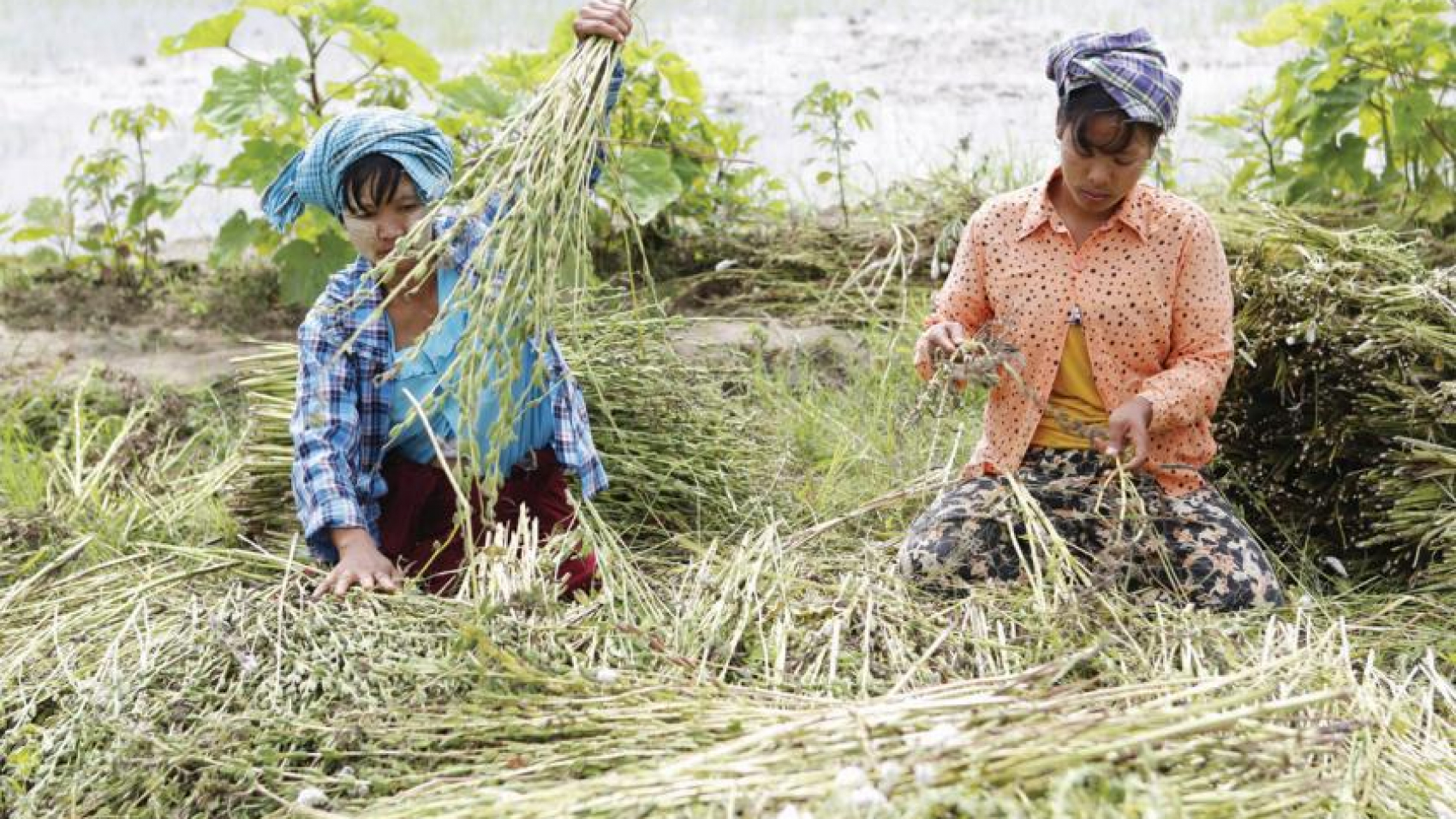The prices of peanut and sesame seeds are edging up in the domestic market, the market’s price data indicated. On 1 July, the peanut price moved in the range of K4,100 and K4,400 per viss (a viss equals 1.6 kilogrammes), whereas the price rose to K4,600-K4,700 per viss on 9 June. The figures reflected an increase of K300-K550 per viss. Similarly, the prices of sesame hit the highest of K2,556 per viss of Niger seed, K3,333 per viss of brown sesame and K5,444 per viss of black sesame (Samone variety) on 1 July.
The price rose to K2,711 for Niger seed, K3,933 for brown sesame and K5,778 for black sesame on 9 July. The price of various sesame seeds showed an increase of K150-K600 per viss. After Myanmar’s export ban on oil crops reversed, the prices of peanut and sesame prices inflated. The local millers are also increasingly purchasing them, scaling the stocks down, according to the commodity depots.
Last April, world’s top palm oil exporter Indonesia, which is one of the main oil suppliers to Myanmar, declared an export ban on cooking oil export to reduce domestic shortage. Consequently, Myanmar’s Trade Department under the Ministry of Commerce temporarily suspended exports of oil crops (peanut and sesame) from 9 May to ensure oil self-sufficiency. Exports of Myanmar’s edible oil crops will resume as the world’s top palm oil exporters return to normalcy, according to a notification dated 5 July 2022 released by the Trade Department.
Source: The Global New Light of Myanmar

